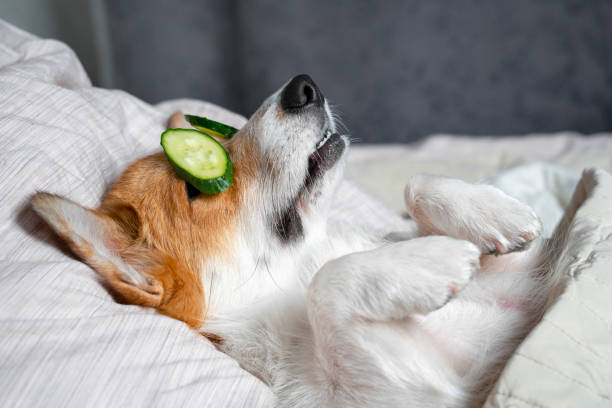The Ultimate Guide to Ensuring Your Pet Always Smells Fresh and Clean

Understanding the Importance of Pet Hygiene
Pet hygiene goes beyond just keeping your pet looking good. Proper grooming and cleanliness can prevent various health issues, from skin infections to bad breath. Regular maintenance not only ensures your pet smells pleasant but also contributes to their overall well-being.

Regular Grooming: The Cornerstone of Freshness
Brushing Your Pet’s Coat
Brushing Basics
Maintaining a clean and pleasant-smelling pet starts with regular brushing. This essential task helps eliminate loose fur, grime, and dander from your pet’s coat. Additionally, brushing stimulates the natural oils in their fur, promoting a healthier and shinier coat. For optimal results, aim to brush your pet weekly, or more often if they have a longer or denser coat.
Bathing Instructions
Giving your pet a bath helps to wash away dirt and excess oils that can lead to undesirable odors. However, excessive bathing can deplete the natural oils in their coat, which might cause dryness and skin irritation. For most pets, a bath every 4 to 6 weeks is ideal. Always use lukewarm water and a shampoo specifically designed for pets to keep their skin in good condition.
Nail Trimming and Ear Cleaning
Keeping your pet’s nails trimmed is essential not only for their comfort but also for preventing any potential odor that might arise from dirt buildup in long nails. Additionally, regular ear cleaning can prevent infections that might cause unpleasant smells. Use a vet-recommended ear cleaner and follow proper techniques to avoid damaging the sensitive ear canal.
Choosing the Right Pet Shampoo
Types of Pet Shampoos
Selecting the appropriate shampoo is crucial for maintaining your pet’s coat and skin health. There are various types of pet shampoos available, including medicated, hypoallergenic, and moisturizing. Choose a shampoo based on your pet’s specific needs, whether they require extra moisturizing, have sensitive skin, or need treatment for skin conditions.
Natural vs. Chemical Ingredients
Opt for shampoos with natural ingredients to avoid potential irritants and allergens found in chemical-laden products. Ingredients like oatmeal, aloe vera, and chamomile are often beneficial for your pet’s skin and coat. Always read the labels and choose products free from harsh chemicals.
Maintaining Oral Hygiene
Brushing Your Pet’s Teeth
Maintaining dental health is just as crucial for pets as it is for people.
Regular tooth brushing helps prevent tartar buildup and bad breath. Use a toothbrush and toothpaste designed specifically for pets. Aim to brush your pet’s teeth several times a week to maintain optimal oral health.
Dental Chews and Treats
In addition to brushing, dental chews and treats can aid in reducing plaque and freshening your pet’s breath. Look for products approved by veterinary dental associations, which can be a convenient and effective supplement to regular brushing.
Diet and Its Impact on Pet Odor
Choosing a Balanced Diet
A well-balanced diet can significantly influence your pet’s odor. High-quality pet food with appropriate nutrients helps maintain a healthy coat and skin, which can minimize bad smells. Consult with your vet to select the best food for your pet’s specific dietary needs.
Understanding Food Sensitivities
Sometimes, unpleasant odors can be a sign of food sensitivities or allergies. If you notice persistent odor despite regular grooming and cleaning, consider evaluating your pet’s diet and discussing potential food allergies with your veterinarian.
Cleaning Your Pet’s Living Environment
Regular Vacuuming and Cleaning
Maintaining a clean living space for your pet is essential for reducing odors. Regularly vacuum and clean areas where your pet sleeps, plays, and eats. This practice helps remove pet hair, dander, and any odors that may accumulate in your home.
Pet-Safe Cleaning Products
When cleaning your home, use pet-safe products to avoid exposing your pet to harmful chemicals. Look for cleaners that are non-toxic and specifically designed for households with pets. This ensures that your home remains fresh and clean without risking your pet’s health.

Dealing with Specific Odors
Tackling Skunk Odor
If your pet has had an unfortunate encounter with a skunk, immediate action is required. Combining hydrogen peroxide, baking soda, and dish soap can effectively eliminate skunk smell.
Follow a recipe and application method recommended by veterinarians to ensure safety and effectiveness.
Handling Smelly Ears
Foul odors from your pet’s ears can indicate an infection or buildup of wax. Regular ear cleaning and monitoring for any signs of discomfort or discharge can help manage this issue. If an odor persists, consult with your vet for appropriate treatment.
Additional Tips for a Fresh-Smelling Pet
Using Pet Deodorizing Sprays
Pet deodorizing sprays can be a quick fix for occasional freshness. Look for sprays made with natural ingredients and free from harsh chemicals. These can help mask odors and add a pleasant scent to your pet’s coat.
When to Consult a Professional
Recognizing Health Issues
Unusual or persistent odors could signal underlying health problems. If you observe significant changes in your pet’s scent or overall health, it’s important to seek advice from your veterinarian. Prompt medical attention can help address potential issues before they worsen.
Consulting with a Veterinarian
Regular check-ups with your vet can help monitor your pet’s health and prevent issues that may lead to unpleasant odors. Your vet can provide personalized advice and treatment options based on your pet’s specific needs.
Conclusion
Keeping your pet smelling fresh and clean is a combination of regular grooming, proper diet, and maintaining a clean living environment. By following these guidelines and addressing any specific issues that arise, you can ensure that your furry friend remains a joy to be around. Remember, a clean pet is not only more pleasant to be with but also healthier and happier.
FAQs
1. How often should I bathe my pet?
Most pets should be bathed every 4-6 weeks. However, the frequency may vary based on your pet’s breed, coat type, and activity level.
2. Can I use human shampoo on my pet?
No, human shampoos are not suitable for pets as they can disrupt their skin’s pH balance. Always use pet-specific shampoos.
3. What can I do if my pet has a persistent bad smell despite regular grooming?
Persistent odors could indicate an underlying health issue. Consult your veterinarian to rule out medical conditions and get tailored advice.
4. Are there any natural remedies for dealing with pet odors?
Yes, natural remedies such as baking soda and vinegar can help neutralize odors. However, ensure these remedies are used safely and in moderation.
5. How can I prevent my pet’s coat from getting greasy?
Regular brushing and appropriate bathing can help manage oil levels in your pet’s coat. Ensure you are using a suitable shampoo for your pet’s coat type.
